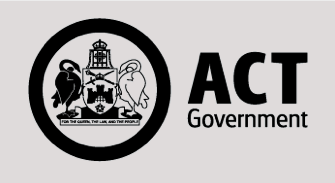
Appendix
Pursuant to section 12(4) of the Director of Public Prosecutions Act 1990 the Annual Report must include a copy of each direction or guideline given by the Director pursuant to section 12 of the Act that is in force at the end of the reporting period. This appendix includes the Prosecution Policy and guidelines for prosecutors.
Prosecution Policy
1. Introduction
1.1 On 1 July 1991 the Australian Capital Territory acquired its own Office of the Director of Public Prosecutions. The ODPP, as the Office is known, was created by the Director of Public Prosecutions Act 1990. That Act, in effect, transferred the responsibility for prosecutions relating to alleged breaches of the laws of this Territory from the corresponding Commonwealth Office to its ACT counterpart.
1.2 The Commonwealth Act, passed in 1983, had made significant changes to the institution and conduct of prosecutions. In particular, it had removed the whole process from the political arena by creating an independent Office of the Director of Public Prosecutions. The Attorney-General retained the right to give guidelines and directions but only after consultation with the Director. Even then the Act required that any such directions or guidelines be published in the Gazette and tabled in Parliament. The ACT Act ensures similar independence.
1.3 The Act also ensures that the prosecuting role will be independent of the police. The legislature has chosen to separate the investigative and prosecutorial functions and, in fact, each is independent of the other. Of course, in practice, there will need to be cooperation and consultation between the respective bodies. Nonetheless, once the investigation has culminated in a prosecution any decision as to whether or not it should proceed will be made independently by the ODPP. In the ACT that independence extends to summary prosecutions as well.
2. The Decision to Prosecute
General Criteria
2.1 It is sometimes assumed that every allegation of criminal conduct should culminate in a prosecution. Fortunately such a blanket approach has never formed part of the system of justice in England or Australia. Sir Hartley Shawcross QC, then the English Attorney-General, explained the position to the House of Commons on 28 January 1951 in the following terms:
“It has never been the rule in this country - and I hope it never will be - that suspected criminal offences must automatically be the subject of prosecution. Indeed the very first regulations under which the Director of Public Prosecutions worked provided that he should ... prosecute ‘whenever it appears that the offence or the circumstances of its commission is or are of such a nature that a prosecution in respect thereof is required in the public interest.’ That is still the dominant consideration.”
(HC Debates, Vol 483, col 681, 28 January 1951).
This statement has been widely quoted in Australia and overseas. The decision to prosecute should not be made lightly or automatically but only after due consideration.| |
||||
| DIRECTOR OF PUBLIC PROSECUTIONS ANNUAL REPORT 2012-2013 | ¦ 67 |
|||
| ← Previous Page | Next Page → | |||

